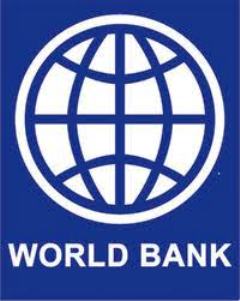Panel urges investigation into World Bank funded project in Ethiopia
By Tesfa-Alem Tekle
March 21, 2013 (ADDIS ABABA) – An independent panel has urged an investigation into complaints by Ethiopians that the World Bank is funding a programme that has forced tens of thousands of people off their land.
 The World Bank’s independent accountability panel insists allegations that it has violated its policies by supporting the Ethiopian project should be looked into.
The World Bank’s independent accountability panel insists allegations that it has violated its policies by supporting the Ethiopian project should be looked into.
The so called “villagisation” programme, which was introduced by the Ethiopian government in 2010, has been widely criticised by advocacy groups as a form of widespread human rights violations, carried out in the pretext of providing better services and improving the livelihoods of communities.
The Anuak indigenous people from Ethiopia’s western Gambella area allege that they have been forcibly evicted and their land is now being leased to foreign firms and local investors for commercial agricultural development.
They say they have been relocated to an area where the land is infertile and where there are no basic services.
According to Human Rights Watch (HRW), the repositioning operation is carried out with little or no consultation with villagers and also without proper compensation, an allegation Addis Ababa denies.
“The World Bank’s president and board should support an internal investigation into the plagued Ethiopia project without delay”, said Jessica Evans, a senior international financial institutions advocate at HRW.
The World Bank’s Promotion of Basic Services (PBS) project was launched to “advance education, health care, water and sanitation, agriculture and rural roads”.
However, those displaced say they have been severely affected by the PBS project, which is jointly funded by the World Bank and the UK Department for International Development (DfID), saying it is contributing directly to the Ethiopian government’s “villagisation” programme.
A research paper prepared by Inclusive Development International (IDI) on behalf of the Anuak people and sent to the World Bank’s board of executive directors last September found “credible evidence that gross human rights abuses are being perpetrated”.
The US-based advocacy group says it has collected video and audio recordings of victims’ testimonies, detailing intimidation, beatings, arbitrary arrest and detention, torture in military custody, rape and extra-judicial killing.
Dispossessed of their homeland, IDP says thousands of Anuak people have fled Ethiopia and sought asylum in neighbouring Kenya and South Sudan.
A board meeting scheduled to be held on 19 March on whether to consider the inspection panel’s recommendation has been postponed.
Ethiopia’s “villagisation” program plans to relocate some 1.5 million citizens from their ancestral lands, including indigenous and other marginalised people.
The Horn of Africa country has a long and controversial history of resettlement and “villagisation”, which dates back to the 1950s.
The government has justified the resumption of the programme, saying it is undertaken on a voluntary basis and is necessary to centralise infrastructure by shifting villages closer to roads and available water supplies.
A report released last January by HRW titled “Waiting Here for Death: Forced Displacement and ‘Villagisation’ in Ethiopia’s Gambella Region” examined the first year of the project. It detailed the involuntary nature of the transfers, the loss of livelihoods, the deteriorating food situation, and ongoing abuses by the armed forces against affected people.
(ST)
